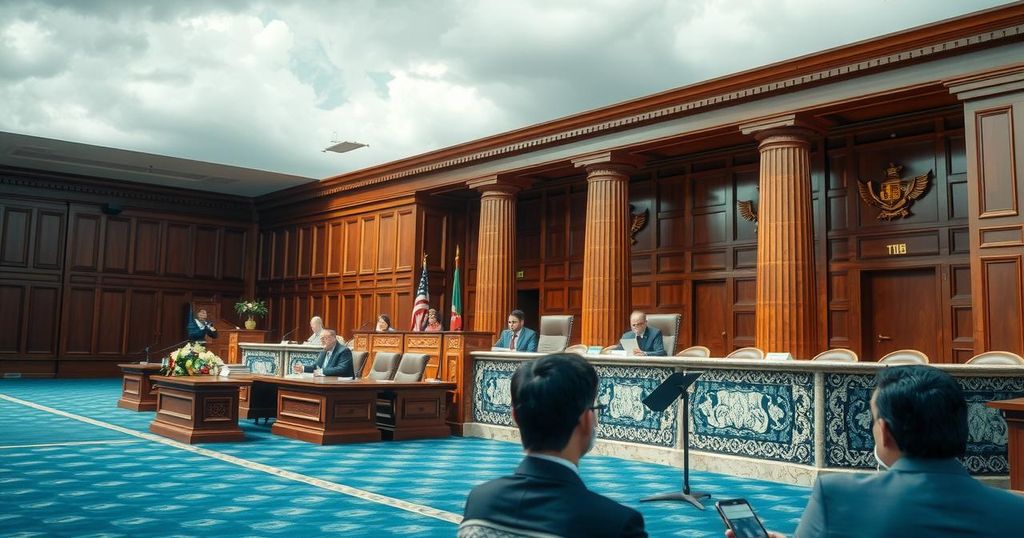Nepal Presses for Climate Justice at the International Court of Justice

Nepal has presented a case for climate justice at the International Court of Justice, highlighting the significant impacts of climate change on its vulnerable population. Foreign Minister Arzu Rana Deuba emphasized that Nepal disproportionately suffers from climate repercussions due to global warming and urged developed nations to fulfill their obligations to assist and compensate developing countries. The ongoing hearings aim to clarify state responsibilities concerning climate change.
At the International Court of Justice (ICJ), Nepal presented a compelling case for climate justice, highlighting the severe impacts of climate change on its population. During the public hearings on the “Obligations of States in respect of Climate Change,” Nepal’s Foreign Minister, Arzu Rana Deuba, emphasized that the country has disproportionately suffered due to global warming, reiterating, “We are paying for a bad ‘karma’ we did not create”. The minister illustrated the dire situation by referencing the rapid melting of glaciers and the devastation of natural disasters such as landslides and severe storms that threaten livelihoods and infrastructure.
Deuba further articulated Nepal’s plight amidst global climate challenges, noting the depletion of glacial lakes and the vulnerability of the country due to its geographical conditions and limited development resources. He raised concerns regarding the obligations of developed nations to mitigate emissions, asserting that many vulnerable states, including Nepal, struggle to fulfill their human rights obligations due to external climate impacts.
The case is unprecedented, featuring arguments from numerous nations and entities, highlighting the urgent need for a legal framework addressing climate change responsibilities. Udaya Raj Sapkota, the Secretary of the Ministry of Law, reinforced the principle of preventing transboundary harm and emphasized the necessity for differential obligations tailored to the specific vulnerabilities of landlocked and mountainous nations.
Nepal also sought recognition of the duty of assistance from developed countries in line with the Paris Agreement, asserting that such nations must financially support their developing counterparts in addressing climate challenges. Suvanga Parajuli, Under Secretary at the Ministry of Foreign Affairs, countered the notion of climate change as a collective tragedy, demanding compensatory justice for the damage wrought by historical emissions from developed countries.
The hearings, which span from December 2 to 12, 2023, aim to clarify legal questions posed by the UN General Assembly regarding state responsibilities under international law in relation to climate change.
The context surrounding Nepal’s appeal at the ICJ lies within the global discourse on climate change and its effects on vulnerable nations. As one of the least developed countries, Nepal has faced significant adverse consequences of climate change despite contributing minimally to global emissions. The ICJ hearings are intended to establish a legal framework that delineates the responsibilities of states in combating climate change, a concern that has been increasingly influencing international relations and domestic policies worldwide.
In conclusion, Nepal’s appeal at the International Court of Justice underscores the urgent need for global accountability in climate change. The country’s representatives have highlighted the disproportionate impacts faced by vulnerable nations, emphasizing the legal and ethical obligations of developed states to provide support and compensation for historical emissions. As the world’s attention turns towards these crucial hearings, the outcome may shape future international climate policies and responsibilities.
Original Source: kathmandupost.com






